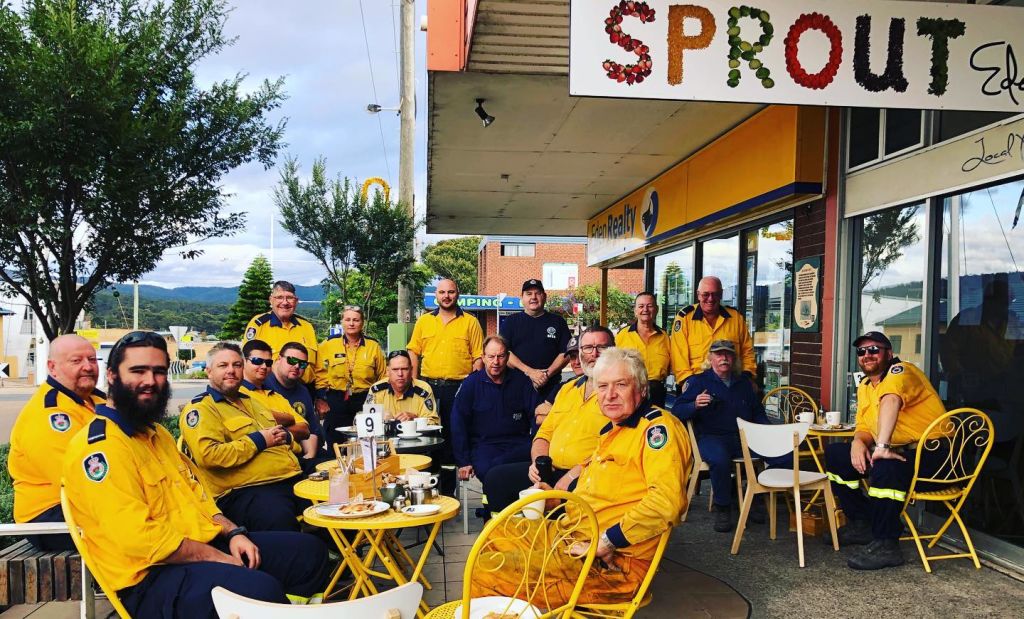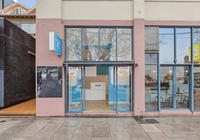
South Coast businesses suffering after the devastating bushfires begin the slow task of getting back on their feet
January is the busiest month of the year for cafe owners Karen and Stan Soroka. It’s when they make the majority of their money from the tourists who flock to the town of Eden, on the NSW south coast – usually enough to tide them over during the quieter winter months.
But not this year. Even though Eden remains relatively untouched by the fires – compared with the damage wrought in the town of Mallacoota, south of the border – its proximity to them and the impact of road closures and a mandatory tourist evacuation order for a huge section of the state’s south-east in the middle of January have had a devastating effect on local businesses.
Weekly turnover at Sprout, their cafe and produce store – established by the Sorokas seven years ago – was down $25,000 on typical figures for each week in January.
“It’s very different this time, with the tourist evacuation order and the highways closed business was down $25,000 a week in January. We’ve gone from $145,000 in January 2019 down to $45,000,” Ms Soroka said.
The poor January performance has had flow-on effects for the rest of the business.
“Immediately we had to let our full-time cook go, and everyone that’s left on the staff has had their hours reduced hugely – but they’re all mucking in and developing new ideas for a new menu with cost-cutting in mind,” Ms Soroka said.
Mr Soroka, who also runs a wood-smoking business, Eden Smokehouse, said that trade from other south coast towns had also dropped off owing to the closed roads. He estimated that the smokehouse profits were down 90 per cent on the previous year.
The story is the same with other businesses in the town, with many owners unsure of their long-term plans.
“There’s talk that there could be 25 per cent of businesses along the south coast that could go,” Mr Soroka said.
In NSW there is financial support for businesses in the form of grants and loans funded jointly by the NSW and Commonwealth Governments through Disaster Recovery Funding Arrangements. However, much of this is designated for businesses directly damaged by fire activity.
The financial support includes grants of up to $50,000 for small businesses directly affected by bushfire, up to $250,000 to local government areas, a bushfire working capital loan of up to $50,000, and low-interest loans of up to $500,000 to eligible small businesses, primary producers and not-for-profit organisations in bushfire-affected council areas.
Service NSW is the primary point of contact for those businesses seeking assistance in NSW.
“We understand this is a tough time for small businesses and we are doing everything we can to ensure those impacted receive financial assistance as soon as possible,” a Service NSW spokesperson said.
“Bushfire-affected small businesses can contact the Service NSW’ business concierge’ team for business advice, financial assistance and personalised support on 13 77 88, or visit service.nsw.gov.au.”
The ongoing crisis is likely to have an impact on retail property landlords, according to Shaun O’Sullivan a director at m3property, with values expected to take a dip if reduced trade levels continue beyond the January slump.
“The values of retail properties in fire-affected towns will undoubtedly be impacted by any significant and ongoing loss of business or trade. Assuming the property survived the fire, the extent of any downgrading in valuations will vary according to the type of tenant in occupation with, for example, non-discretionary spend retail-based properties such as supermarkets are likely to fare better than discretionary based specialty properties,” Mr O’Sullivan said.
“As a rule, valuations fluctuate with economic cycles and the bushfires may well work to magnify the negative impact of the current soft economic conditions,” he added.
Signs of hope, more support needed
Government support has been limited for those who have not lost property but are struggling with the ripple effect of the fires.
“We do have insurance for loss of income due to business interruption, but a lot of other businesses don’t,” Ms Soroka said.
“As far as grants or loans go people are hesitant to take them up – you just don’t know how you’re going to trade out of this.”
But there are signs of hope.
Some of the roads have been recently reopened through to the ACT and Victoria, including the Princes Highway, and with this has come a few carloads of visitors who wanted to give local businesses a boost.
A campaign from online e-commerce platform It’s My Shout designed to give local businesses a boost, while simultaneously helping affected community members, has also helped boost morale.
“I joined It’s My Shout – where people can donate meals and other things to someone in need. So somebody buys a meal for someone in the community, and it gives me income at the same time. We’ve already had a few orders coming through there,” Ms Soroka said.
The Commonwealth Bank also agreed to waive merchant fees for eftpos transactions as a gesture of goodwill following a phone call from Ms Soroka, who encouraged other business owners to also get in touch with their bank.
As for what the general public can do, Ms Soroka said: “Try to fit in a visit and bring an empty Esky”.
“We’re just hoping that people will come back in the future. It’s not like everything here is burnt, there are still beautiful parts of the coast that haven’t been touched by fire.”










